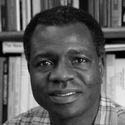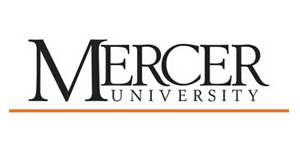2017
CfP for a book on African proverbs in honour of Prof. John S. Mbiti
A CALL FOR CONTRIBUTIONS to a book on African proverbs in honor of Prof. John S. Mbiti Editors: Anne Kubai and Damaris Parsitau
Proposed title: Indigenous Epistemologies: African Proverbs on Human Relations, the Supernatural and the Environment
Prof. John Mbiti’s pioneering research and lifetime devotion to the study of African religions and philosophy is acclaimed globally. To honour Prof. Mbiti for his enormous contribution to scholarship, we are calling for essays to be put together in an edited volume.
When Prof. Mbiti gave his keynote speech at Egerton University during the AASR conference in 2012, he made a plea for research on African proverbs, which, in his view, is a theme that has not been adequately examined by African scholars of religion and philosophy. In his honor therefore, it is fitting for this volume to focus on a theme that he is interested in – that is the gap in current research on the philosophy and indigenous knowledge preserved in and transmitted through African proverbs.
With the processes of social change that have characterized the 21st Century, and the attendant weakening of ‘traditional’ social institutions, many societies are witnessing global challenges that call for multi- pronged responses. Without making the obvious reference to the terrain of social media, the question of knowledge – old and new – how it can be preserved, used and generated not only for social and economic advancement, but also as a common good in society, has come into sharp focus in recent times. One of the questions that needs to be answered is: what type of knowledge is not only necessary but also appropriate for different purposes? By focusing on African epistemologies through proverbs in his key note address at the African Association for the Study of Religions (AASR) conference in 2012, Prof. Mbiti called upon us at Egerton to take up the noble task of exploring this treasure of indigenous knowledge.
The contributions will take cognizance of Prof. Mbiti’s achievements in laying the foundation for the development of scholarship on African religion and philosophy, starting with his all-time classic, An Introduction to African religions and Philosophy, published in 1969. The essays in the edited volume therefore, will be organized around (though not limited to) the following three broad areas:
(a) Analysis of proverbs that speak to the issues of human relations and wellbeing
- social networks
- peace and conflict
- taboos, rituals, behavior, etc
- gender relations
- health – the body, sexuality, etc
- rites of passage
(b) Analysis of proverbs that address the relationship between the supernatural and human beings
- sacrifices
- prayers
(c) Analysis of proverbs that address the relationship between human beings and the
environment, nature or natural resources
- sacred places: mountains, rivers, shrines, animals, etc
- human connection to land, sea, etc
_________________________________________________________
TIME FRAME
– Submission of abstracts: 15-2-2017
– Submission of first drafts of chapters: 30-7-2017
– Comments from reviewers to authors: 30-10-2017
– Submission of revised drafts: 30-12-2017Please, send your proposal for a contribution to the editors:
Prof. Anne Kubai, anne.kubai@teol.uu.se
Dr. Damaris Parsitau, dparsitau@yahoo.com; dparsitau@egerton.ac.keNB. A writers’ workshop to bring together the writers for two days is envisaged in the project, but this depends on the availability of funds.
2017
Conference: “THE ARTS IN THE POST-MODERN ACADEMY AND SOCIETY”
SCHOOL OF ARTS,
UNIVERSITY OF GHANA
Call for Abstracts
SCHOOL OF ARTS CONFERENCE 2017
“THE ARTS IN THE POST-MODERN ACADEMY AND SOCIETY”
University of Ghana, May 3-4, 2017
Background:
The narrow emphasis of modern thought on the scientific method in academic inquiry as that which is quantitative and generating rationally quantifiable data and results, has always been philosophically debated in the academy. The consequence of this narrow definition of academic enquiry is the questioning of the scientific nature of the arts and the trivialization of its place within the walls of the modern academy and its relevance for the modern society on its forward match to ‘progress’. This is because values, belief systems and the meanings and explanations that societies and peoples give to existential situations tend to be trivialized within modern intelligibility. This, indeed, also has implications for the funding of research and study of the arts, especially in the public university, where the use of state funds are contingent on economic cost-benefit analyses which require the direct fiscal benefits of research and its policy implications for quantitative model of development. The challenges that this emphasis on scientific rationality posed to the arts, if they would be regarded as science or scientific enough and correspondingly justify their place in the modern academy, are the re-casting of research and study of the disciplines in the arts in the scientific mode, with an emphasis on the quantitative method. The post-modern turn in contemporary academy and society has evoked a new culture of thought and a return to the place of values, meanings and cultural symbols in our understanding of reality, the place of humans in the world and the kind of future and society we want. This turn questions the all-encompassing nature of the modernist ethic and the culture of rationality, verification and falsification as enduring hallmarks of knowledge production and determination of truth (science).
With an emphasis on unpacking and interrogating the concept of “postmodernity” and/or the “post-modern turn” and its implication for research and study of the arts, we welcome abstracts that explore the main theme of the conference in relation to one or more of the following sub-themes:
- The arts as science: meanings, debates and implications.
- The arts, truth and falsifiability.
- Whither the values and priorities of the post-modern university and society.
- Positioning the arts in the post-modern academy.
- Qualitative research, the post-modern academy and development.
- The arts as the philosophical foundation for scientific research.
- The foundational nature of the arts in the post-modern academy and society.
- Beliefs, traditions and norms in the post-modern academic research and society.
- The arts, values and the post-modern academy.
- Archaeological research and scientific enquiry.
- Indigenous knowledge, value research and development
For more information, see the full Call for Papers.
2016
Holiday Greetings from the AASR
Dear Colleagues,
We extend greetings to all of you during this holiday season.
We thank all of you who attended our biennial conference in Ghana this past July and Dr. Rose Mary Amenga-Etego who led the local arrangements committee for their excellent work and the warm welcome they gave us in Ghana. We also thank our colleagues who presented papers at the recent AAR and SBL Annual Meeting in San Antonio that met from November 19-22 2017 and at the African Studies Association Annual Meeting that met in Washington DC December 1-3, 2016.
I extend our thanks to members of the executive, the regional and country representatives, the web team, the editorial team for the AASR Bulletin and the AASR E-journal for the hard work they do behind the scenes to promote our mission and the goals of our academic association.
We expect to complete consultation early in the New Year and send out an announcement and invitations to the next AASR biennial conference that will hold in Cameroon in 2018. We encourage you to make plans to attend that conference.
Happy holidays from members of the Executive Committee and your Regional and National Representatives.
Sincerely,
Elias Kifon Bongmba
AASR President
2016
Congratulations to Melissa Browning!
We extend our congratulations to Dr. Melissa Browning who has been appointed Assistant Professor of Contextual Ministry at the McAfee School of Theology at Mercer University. Brown served for a long time on the executive of the African Association for the Study of Religion and her partner Wes Browning worked with Jan Platvoet on the AASR Website.
Brown received her Ph.D. in Christian Ethics from Loyola University in Chicago and is author of Risky Marriage: HIV and Intimate Relationships in Tanzania. See her University Webpage for more details.
2016
Essay by Bongmba: ‘Writing African Christianity’
An important essay by AASR President, Professor Elias Bongmba, has recently been published in the journal Religion & Theology (vol. 23, no. 4, pp. 275-312). The essay is entitled ‘Writing African Christianity: Perspectives from the History of the Historiography of African Christianity’.
Abstract
In this overview of the historiography of Christianity in Africa a number of desiderata and considerations for future research are reviewed. The first issue considered relates to the practice of historiography. The second issue relates to African identity/-ies and its relationship to global cultural movements. The third desideratum is the pursuit of new disciplinary practices in the study of African Christianity, especially interdisciplinarity as scholarly ethos. Finally, a number of themes that should become foci in historiography of African Christianity are explored, among these are: concentration on local and regional narratives, the gendered character of Christianity in Africa, attention to the material conditions and needs of African religious communities and the various cultural innovations adopted to cope with these conditions, as well as the role of Christian communities in development in Africa and the wider encompassing question of ethics and morality.



